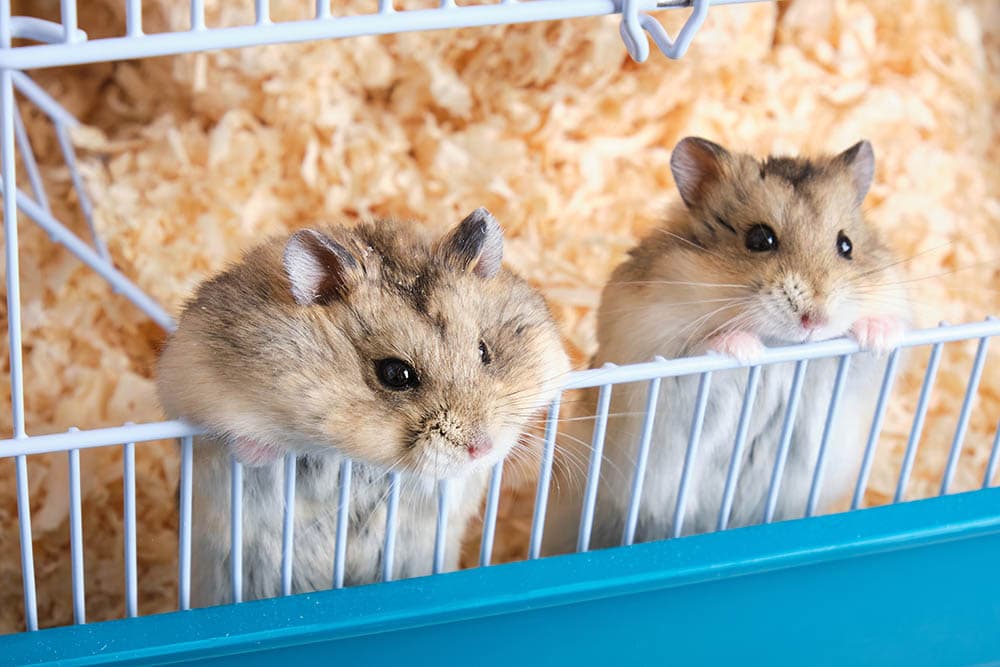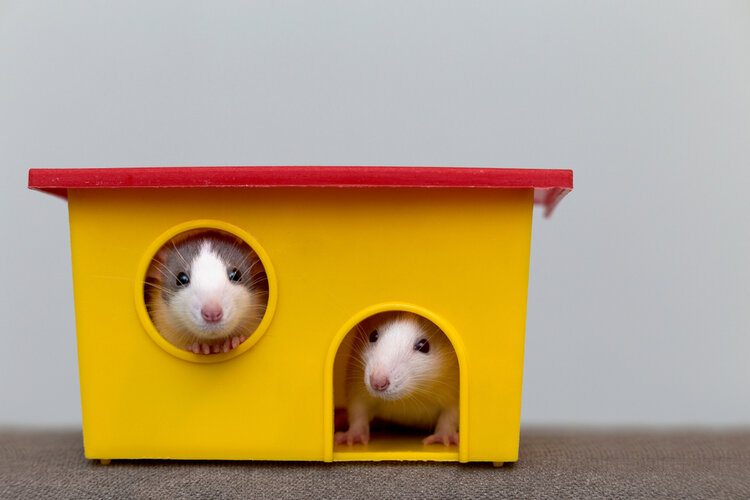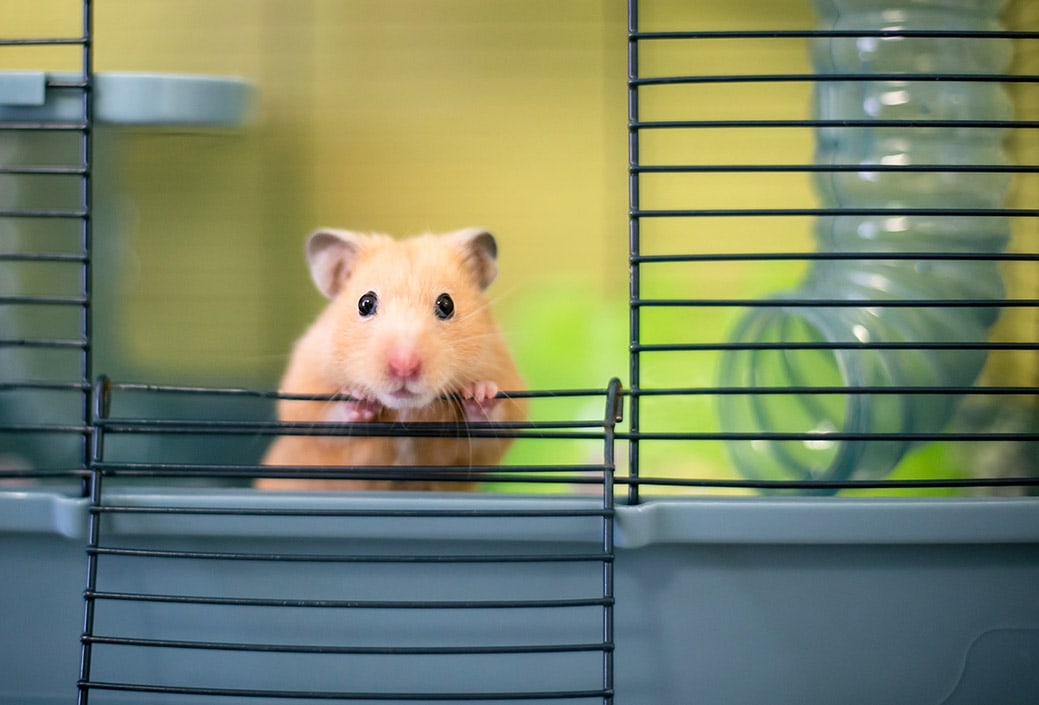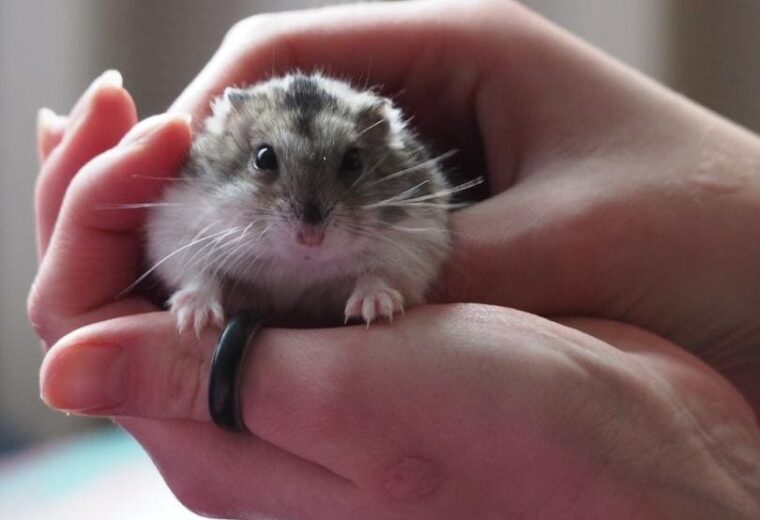
Hamsters are extremely popular small rodents for people to keep as pets. They are often considered to be beginner pets for children, but they are becoming increasingly popular with experienced keepers and adults alike.
Due to their small size, short lifespans, and classification as rodents, hamsters are often thought of as unintelligent animals with no loyalty or recognition of their owners. Can they actually recognize their owners, though? Hamsters can be trained to recognize humans and not panic when they’re handled; however, they don’t have the ability to distinguish their owners from other people. Here’s what science tells us.
Do Hamsters Recognize Their Owners?
To date, there are no cognition studies on hamsters that attempt to answer the question of recognizing a specific person (their owner) and being able to distinguish them from other people.
However, hamsters have been used in some cognitive studies that are aimed to better understand their ability to recognize other hamsters. These studies offer us some clues into a hamster’s potential to recognize a person. However, it must be stressed that these are mere possibilities, not definitive proof of hamsters being able to recognize their owners.
In order to recognize someone, hamsters would need to have the memory of the person. In a study on hamster memory 1, it was found that hamsters can recognize other hamsters on an individual basis based on their smell (scent) and a history of physical contact (touch) with the hamster. The hamsters in this study were able to correctly identify other hamsters they’d encountered even when the other hamster was placed under anesthesia and was physically unresponsive to their approach. Such a study may lead to a plausible explanation that, if a hamster spends enough time with their owner and is frequently handled by them, that they could learn to “recognize” their owners – or at the very least, their hands. It might also explain why it is possible to hand-tame a hamster in the first place.
In another study 2 that was conducted to better understand a hamster’s ability to identify another hamster, it was found that hamsters could remember other hamsters and used this to avoid confrontation with them. This would serve a benefit to avoid conflict, and therefore, is considered useful for survival. However, it must be noted that this recognition trait was only in response to other hamsters, not humans.
The summary of present day scientific research on hamsters 3 does not have any information on their ability to recognize individual people. Therefore, based on the research available, a hamster may be tamed to recognize a hand as friendly, and may definitely respond to familiar smells. However, whether or not they can ascertain that these traits belong to a person is not evident yet.
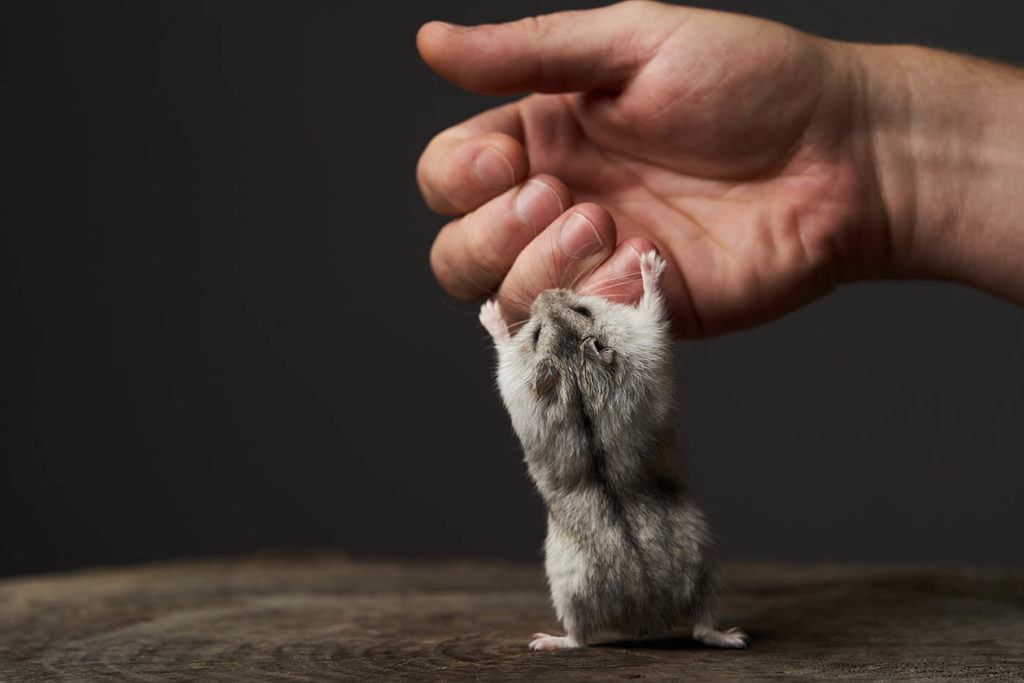
Socialization of Hamsters
Though the science of hamsters recognizing humans on an individual basis is still unclear, they can be hand-tamed. The key to helping your hamster recognize you and your hand is by socializing them, which is a process that requires patience and gentleness to build trust with your hamster.
It is very important to remember that the earlier a hamster is socialized, the more readily they learn to accept human hands as a non-threat; therefore, you should thoroughly research the source from where you adopt your hamster. A poorly socialized hamster will be very difficult to tame, and a hamster that isn’t tame can certainly bite and draw blood.
The first step to helping socialize your hamster is to keep them in an area where they can get used to your scent. They shouldn’t be kept in high traffic and noisy environments, but keeping your hamster in your bedroom or office where they will be able to be around you in a quiet environment can help build trust. Anecdotally, people claim that their hamsters can recognize their sound, but there’s no way to tell if they are indeed responding to their voice; a hamster might be able to smell a person before they hear them.
Handling your hamster and allowing them time outside of their enclosure every couple of days can help get them used to being handled, as well as being near you. Make sure your hamster is in a secure location away from other pets and that won’t allow them to go missing. Ideally, your hamster should already have some level of trust in you before you attempt to handle them. Handling a stressed and fearful hamster has the potential to make them feel less confident with you. Always handle your hamster very gently to prevent stress and injuries.
Providing treats and being the one to refill food, clean the enclosure, refill the water, and provide toys can help socialize your hamster and get them acquainted with you. This requires a commitment on your part to provide this care for your hamster on a very regular basis to ensure the trust is built.

- You might also like: Do Hamsters Recognize Their Name
Conclusion
Hamsters are more intelligent than they are often given credit for, but they are prey animals that can be fearful and distrusting. While they can learn to recognize specific physical touches and scent, they likely cannot make the conclusion that they are identifying you. Nonetheless, hamsters can be hand-tamed, and doing so is important to familiarize your pet with yourself and minimize the risk of a bite from your rodent.
Featured Image Credit: Attila Bódis, Pixabay



